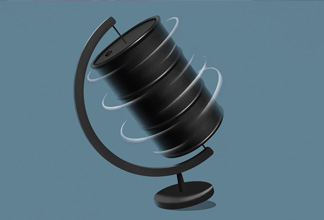How Much? Canadians Believe They Need THIS Much to Retire
Written by Peter Nowak
Published on May 15, 2019
minute read
Share:
Savings of a million dollars should be enough to retire, right?
Your response to that question might depend on where in Canada you live, according to a recent Ipsos poll conducted on behalf of RBC.
In British Columbia, people who aren't yet retired believe they'll need to save nearly $1.1 million in investment savings to have a comfortable financial future. The sum is considerably lower in Quebec, at $426,779. Ontario comes in at $872,000. Meanwhile, the average across Canada is $786,737.
The disparities may not mean much in the end because nearly half of respondents, or 46 per cent, also said they don't actually have a financial plan to reach those targets. Among those who do, about a third say their plan is "in their head," rather than something more official.
Gen Xers and Millennials, according to the poll, are the most likely to lack a financial plan (formal or informal) – 52 per cent and 48 per cent of respondents, respectively. Geographically, Canadians in the Atlantic provinces and Quebec are most likely to not have a plan. Both came in at more than 50 per cent.
Many Canadians are concerned about not having enough money for a comfortable retirement. Thirty-nine per cent of the 2,000 adults polled believe they'll never save a large enough nest egg.
"Debt is a huge motivator for most Canadians — they're telling us they don't want to live with debt now and they don't want to retire with debt in future," says Richa Hingorani, RBC's Senior Director of Digital Strategy. "Identifying actions to start taking today is an important first step," Hingorani adds, noting the effectiveness of putting a plan in place.
Government measures are being introduced to help Canadians in the future. In March, the federal government proposed changes that would allow working seniors to keep more of their earnings.
The new rules, slated to take effect in July 2020, would raise the amount that seniors can earn annually before triggering a reduction in their Guaranteed Income Supplement, a government benefit for low-income Canadians. Seniors would be able to make $5,000 per year before the benefit reduction kicks in, rather than the current $3,500.
The 2019 Federal Budget also proposed the introduction of the Advanced Life Deferred Annuity (ALDA), which would allow retirees to transfer some of their registered retirement savings into an annuity that wouldn't be required to start until the recipient reached the age of age 85. Tax rules currently generally require annuities purchased with registered funds to start by the end of the year the annuitant turns 71.
The government says the delay would allow investors to keep some of their money in retirement funds longer, and thus have the potential to earn more on them.
Despite the possible benefits of these government measures, Canadians must still take responsibility for making their own plans.
Lisa Kramer, a professor of finance at the University of Toronto, writes in The Globe and Mail that a big part of the problem when it comes to financial planning is that most individuals "lack a sense of connection with the future version of themselves." Psychologists attribute that to something called "present bias," which translates to a preference for immediate financial benefits rather than waiting for larger ones down the road.
One solution might be to develop a relationship with one's future self. "Possibilities include having a client write a letter from her future self to her present self, or having her detail a typical day from the retirement she envisions," Kramer writes.
As the saying goes, a journey of a thousand miles begins with a single step.
What does that first (or second or third) step look like? Check out Three Steps to Planning Your Retirement for some ideas.
RBC Direct Investing Inc. and Royal Bank of Canada are separate corporate entities which are affiliated. RBC Direct Investing Inc. is a wholly owned subsidiary of Royal Bank of Canada and is a Member of the Investment Industry Regulatory Organization of Canada and the Canadian Investor Protection Fund. Royal Bank of Canada and certain of its issuers are related to RBC Direct Investing Inc. RBC Direct Investing Inc. does not provide investment advice or recommendations regarding the purchase or sale of any securities. Investors are responsible for their own investment decisions. RBC Direct Investing is a business name used by RBC Direct Investing Inc. ® / ™ Trademark(s) of Royal Bank of Canada. RBC and Royal Bank are registered trademarks of Royal Bank of Canada. Used under licence. © Royal Bank of Canada 2019. All rights reserved.
The views and opinions expressed in this publication are for your general interest and do not necessarily reflect the views and opinions of RBC Direct Investing. Furthermore, the products, services and securities referred to in this publication are only available in Canada and other jurisdictions where they may be legally offered for sale. If you are not currently resident of Canada, you should not access the information available on the RBC Direct Investing website.
Explore More

The Hidden Costs of Being Single
How single Canadians can build wealth on their own terms
minute read

What Investors Can Learn from Hockey Star and RBC Olympian Sarah Nurse
Nurse's path to the podium reveals how preparation, planning and practice can turn potential into a golden opportunity
minute read

Crude Questions? A Look at Canada’s Oil Economy
What you need to know about Canada’s oil industry
minute read
Inspired Investor brings you personal stories, timely information and expert insights to empower your investment decisions. Visit About Us to find out more.







